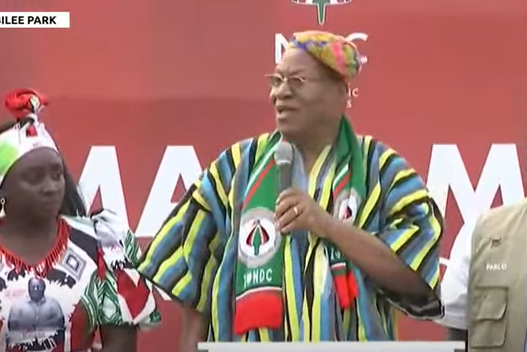Professor Joshua Alabi, Campaign Manager for John Mahama's 2024 campaign team, has credited the NDC for its strategic efforts in reducing voter turnout in the Ashanti Region during the recent elections.
The NDC’s tactical approach, he believes, played a significant role in the outcome of the elections in the region, where both the NPP and NDC were highly competitive.
Before the 2024 elections, the NPP had set a target of securing 85% of the votes in the Ashanti Region, while the NDC aimed for 35%.
Both parties were also focused on increasing their parliamentary representation in the region, which consists of 47 constituencies.
Prior to the elections, the NDC held four parliamentary seats - Asawase, Ejura-Sekyedumase, New Edubiase, and Sekyere Afram Plains—while the NPP controlled 42. The remaining seat was held by an independent MP from the Fomena Constituency.
The election results saw the NPP lose four constituencies - Adansi Asokwa, Adansi Akrofuom, Ahafo Ano South East, and Obuasi East - to the NDC.
As a result, the NDC increased its parliamentary representation in the Ashanti Region from four to eight seats, a significant gain for the party in a historically NPP stronghold.
In an interview with Channel One TV on Monday, 16th December, Professor Alabi attributed the NDC’s success in the region to the party’s focused efforts and careful campaigning.
He suggested that the NDC’s strategic actions had directly contributed to the reduced voter turnout in the region, which in turn had an impact on the NPP’s losses.
He also claimed that the NDC had successfully thwarted any attempts by the NPP to manipulate the ballot boxes in the Ashanti Region, a factor he believed was instrumental in securing the party’s gains.
"I must say that yes, to some extent there was some degree of low voter turnout. But I must say that the low turnout in the Ashanti Region was also a result of the work we did.
Across the country, there must have been low turnout, but in the Ashanti Region, the percentage we have seen is also due to the work we did," he added.
Latest Stories
-
Ghanaian wins 2025 Johns Hopkins Community Service Award for public health leadership
21 minutes -
‘DCE appointments are a poisoned chalice, let the people decide’ – Asiedu Nketia
1 hour -
Asiedu Nketia says choosing DCEs among party members is politically dangerous
2 hours -
Sholay: Bollywood epic roars back to big screen after 50 years with new ending
2 hours -
World’s oldest boomerang doesn’t actually come back
3 hours -
UK to host Trump for full state visit later this year
4 hours -
Deadly airbag fault sees 2.5m cars recalled in France
4 hours -
Burial of Zambia’s ex-president in South Africa halted at last minute by court
4 hours -
Asiedu Nketia says EC with Jean Mensa at helm ‘Must be reset’
4 hours -
‘The entire EC leadership must go; they are not fit for purpose’ – Asiedu Nketia
5 hours -
Banks record GH¢4.3bn profit in April 2025
5 hours -
Banks shareholders’ funds grew by 42.6% to GH¢43.9bn in April 2025
5 hours -
Banks NPL declined to 23.6%, but total NPL stood at GH¢21.7bn in April 2025 – BoG
5 hours -
‘This EC is not fit for purpose’ – Asiedu Nketia demands EC overhaul
5 hours -
Government must build a second CBM to enable vessels discharge quickly, eliminate Leycan bureaucracy – COMAC Chairman
6 hours

